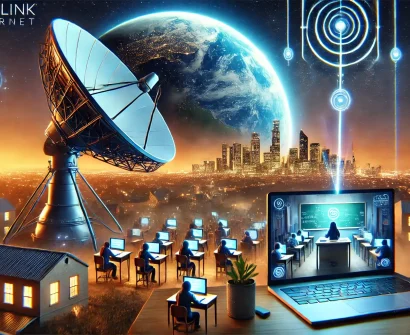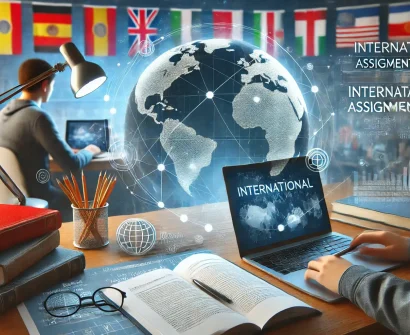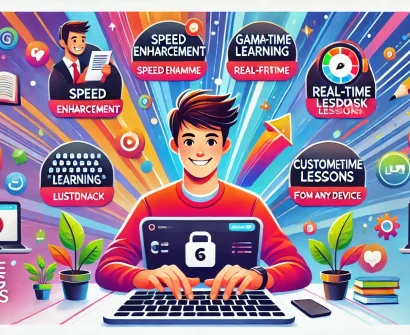The Critical Importance of Digital Literacy for Teachers in 2025

Digital literacy is essential for educators in 2024 as technology transforms education. This article explores the importance, benefits, and challenges of digital literacy for teachers, highlighting how kamranonlineteaching.com bridges the gap between traditional and digital education.
Bullet points of Digital literacy
- Essential Skill: Digital literacy is now a must-have for teachers to adapt to evolving educational technologies.
- Enhanced Teaching: It improves access to tools and resources, boosting teaching quality and student engagement.
- Bridging Gaps: Digital skills connect traditional teaching methods with modern, tech-driven approaches.
- Empowering Educators: Teachers can innovate and personalize learning experiences for diverse student needs.
- Professional Growth: Mastering digital tools ensures career advancement in today’s tech-centric education system.
What is the importance of teachers’ digital literacy?
In other words, digital literacy refers to making digital tools and resources effective for locating, evaluating, creating, and sharing information. What this will mean in 2024 will be “a far cry from just knowing how to turn on a computer or get around the internet,” but rather knowing how to apply various educational software and software tools in interactive learning experiences. In addition, such students should be provided with data-driven assessments to guide informed decisions about their outcomes.
Digital literacy enables instructors to integrate technology in their teaching approach and make their learning process more interesting and individual-oriented. As teachers need to transform into online educators increasingly, they have to be familiar with various LMS including learning management systems and communication tools like Zoom and collaborative tools such as Google Workspace. Our website, kamranonlineteaching.com, focuses on courses that enable conventional teachers to acquire the skills on digital platforms and thus turn into an online educator easily.
Benefits of Digital Literacy to Teachers
1.Increased Student Participation
Teachers will be able to develop engaging learning environments once the correct basis in digital literacy has been achieved. Such digital tools as virtual reality, gamified learning, and multimedia presentations make seemingly hard concepts easy to understand. Apart from increasing student motivation, this enhances the whole learning process.
2.Access to Global Resources
Whether it is in the form of an academic article, eBook, or educational resources, a digitally literate educator can complement his teaching material and expose students to a variety of views.
3.Effective Communication and Collaboration
For example, a teacher can easily communicate with a student, parent, or colleague through digital tools as they are quite proficient in them.. This proficiency allows collaboration to take place on any platform where Microsoft Teams and Google Classroom provide smooth collaborations; hence making it easier to share work assignments and give feedback, amongst other things, and informing people about the whole system.
4.Professional Growth Opportunities
Digital literacy is a way to professional development. Through webinars, online courses, and digital communities, teachers will find resources to use for teaching, up-to-date information on the latest education trends and best practices. Our platform, kamranonlineteaching.com, offers specific courses geared toward the enhancement of the educators’ competencies in a world where the relevance of educators must always be ensured.

The Cons of Digital Literacy for Teachers
1.Learning Curve and Time Investment
The major disadvantage of rolling out digital literacy is that of a learning curve. Indeed, it is daunting and time-consuming for educators who spent most of their professional careers teaching in traditional classrooms to master new technology.
2.Dependence on Technology
This technology dependence at times interferes with teaching when technical hiccups cannot allow students to be taught. A sudden loss of electricity or internet connectivity will break the continuity of a lesson forcing it to be sometimes postponed and causes frustration.
3.Digital Divide
Not all the teachers and students have access to the same level of technology, which creates a digital divide. Moreover, this issue creates difficulty for some educators to completely and entirely adopt digital literacy into their classrooms, mainly in the unresourceful areas.
How Our Platform Catalyzes Digital Literacy
At kamranonlineteaching.com, we well understand the requirement for digitization in teachers’ literacy in 2024. In short, this portal is aimed to train all kinds of educators with basic digital skills through extensive courses. The curriculum ranges from introductory sessions on using educational software to high-level workshops on digital pedagogy. With over 7 years of experience and more than 4,000 teachers trained all over the world, our team with skilled trainers like Miss Amna, Miss Sadia, and Miss Humaira is all geared up to provide educators with quality digital education.
We also provide a customized development plan intended for teachers who experience transition from traditional to distance education settings. Our courses can give educators the necessary digital literacy in just 10 days, making us the first platform in Pakistan to offer such courses.

The Future of Digital Literacy for Teachers
The term digital literacy will develop with the advancement of technology. By 2024, all the tools that would be adopted by new educators will characterize better educators. These teachers must, therefore, be lifelong learners, updating their digital tools regularly, as the requirements within the education world continue changing. Our website www.kamranonlineteaching.com acts as a support system for the individuals who wish to maintain a competitive edge within this digital age.
Bridging the Digital Gap
Empowering educators with digital literacy is not about teaching technology but equipping them to shape the future of education.
Conclusion :
There is no possibility of teachers doing without digital literacy in 2024. It allows for the maximum involvement of students, helps them gain access to a number of global resources, and supports effective communication. However, for the teacher, it presents the challenge of a steep learning curve, reliance on technology, and the digital divide. The embracing of digital literacy and its use of resources such as kamranonlineteaching.com propels teachers to become efficient teaching professionals within their brick-and-mortar and virtual classrooms.Join Sir kamran on linkdin for more support






